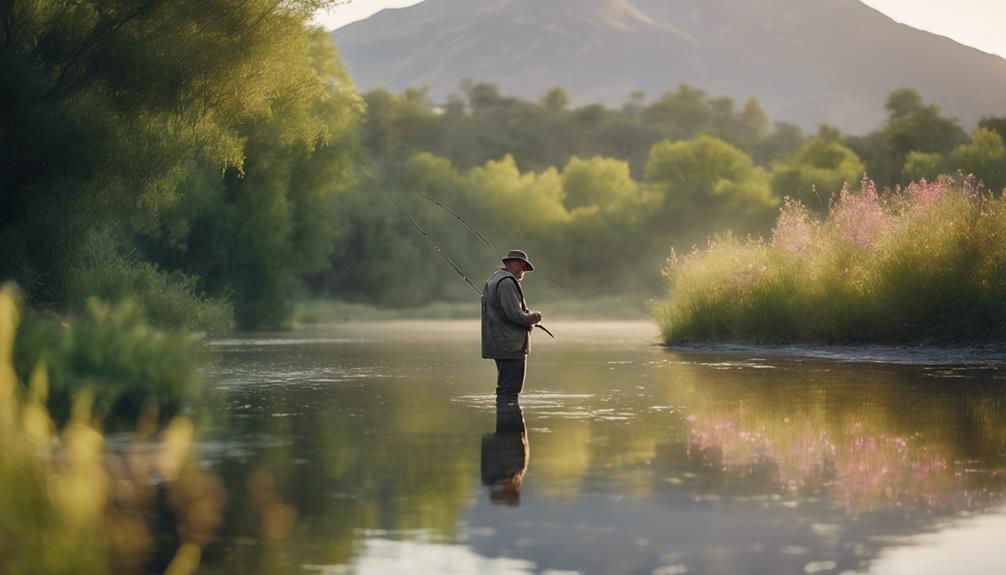Fishing is a beloved pastime for many, whether it’s for relaxation, sport, or connecting with nature. However, a common question that arises among anglers is, “Do you need a fishing license for catch and release?” In this comprehensive guide, we will explore the regulations surrounding fishing licenses, the ethics of catch and release, and provide valuable insights to enhance your fishing experience while complying with the law.
Understanding Fishing License Requirements
When planning a fishing trip, one of the first steps is to understand the local regulations regarding fishing licenses. Each state or country has its own rules, which can vary significantly. Generally, a fishing license is required for all forms of fishing, including catch and release. This requirement exists to help manage fish populations and preserve aquatic ecosystems. Even if you plan to release the fish you catch, a license is often necessary because it contributes to conservation efforts and funding for maintaining water bodies.
In some regions, exceptions may apply for specific types of fishing or certain days of the year, such as free fishing days. However, it’s essential to check with local wildlife agencies or fishing authorities for precise regulations pertaining to your area. Ignoring these rules can result in hefty fines, so make it a priority to know what is required before heading out on your fishing adventure.
The Ethics of Catch and Release Fishing
Catch and release fishing is not just a popular practice; it also raises ethical considerations. Anglers who choose to release fish after catching them often do so to promote sustainability and protect fish populations. This practice allows fish to continue their life cycle, spawning new generations and maintaining healthy ecosystems. However, it is crucial to practice catch and release responsibly to minimize stress and injury to the fish.
To ensure the best outcome for the fish, anglers should use appropriate tackle and techniques. This means using barbless hooks, minimizing the time the fish spends out of water, and handling fish with wet hands to protect their slime coat. By adhering to these practices, anglers can significantly increase the chances of the fish surviving after being released.
Common Misconceptions About Fishing Licenses
There are several misconceptions regarding fishing licenses, especially concerning catch and release practices. One common myth is that a fishing license is unnecessary if you do not intend to keep the fish. This is false; regardless of your intention, a license is typically required. Another misconception is that catch and release is an entirely risk-free practice for fish. While it can be beneficial, if not done correctly, it can still lead to stress or physical harm to the fish.
Moreover, some believe that fishing licenses only apply to freshwater fishing. In reality, licenses are usually required for both freshwater and saltwater fishing, and regulations can vary based on the targeted species. Understanding these misconceptions is vital for responsible fishing and compliance with legal requirements.
How to Obtain a Fishing License
Obtaining a fishing license has become increasingly convenient with modern technology. Most states and countries offer online platforms where you can apply for and purchase a fishing license. Typically, you will need to provide some personal information, such as your name, address, and date of birth, along with payment. Many states also allow you to print a temporary license until your official one arrives in the mail.
Additionally, fishing licenses can often be purchased at local sporting goods stores, bait shops, and sometimes even in grocery stores. It’s advisable to familiarize yourself with the application process in your area to ensure compliance before you hit the water.
Local Regulations and Species-Specific Rules
Local fishing regulations can vary widely based on geographic location and the species you are targeting. Some species may have specific rules regarding size limits, bag limits, and designated catch-and-release areas. For instance, certain lakes may have designated zones where catch and release is mandatory for specific fish species, while other areas may allow anglers to keep only fish that meet particular size requirements.
It’s crucial to stay informed about these regulations to avoid penalties and contribute to conservation efforts. Many state wildlife agencies provide resources, including brochures and websites, where you can access up-to-date information on fishing regulations, species-specific rules, and any seasonal restrictions.
Benefits of Catch and Release Fishing
Engaging in catch and release fishing offers numerous benefits beyond the ethical considerations. For one, it fosters a sense of community among anglers who prioritize conservation. By practicing catch and release, you are part of a larger movement dedicated to preserving aquatic ecosystems and ensuring that future generations can enjoy fishing as much as you do.
Moreover, catch and release can enhance your fishing experience. The thrill of catching a fish and successfully releasing it can be incredibly rewarding. It allows anglers to engage in the sport without the pressure of keeping fish for consumption. Many anglers find that the excitement of the catch is amplified when they know they are contributing to the sustainability of fish populations.
Conclusion: The Importance of Compliance and Conservation
In conclusion, understanding whether you need a fishing license for catch and release is crucial for responsible angling. While the act of releasing fish can contribute positively to conservation efforts, compliance with local regulations is paramount. Always check the specific laws in your area, obtain the necessary licenses, and embrace ethical fishing practices.
By doing so, you not only enhance your fishing experience but also play a vital role in preserving our natural resources for future generations. Whether you’re a seasoned angler or just starting, remember that knowledge and respect for the environment are key components of responsible fishing. Happy fishing, and may your catch-and-release adventures be plentiful!
